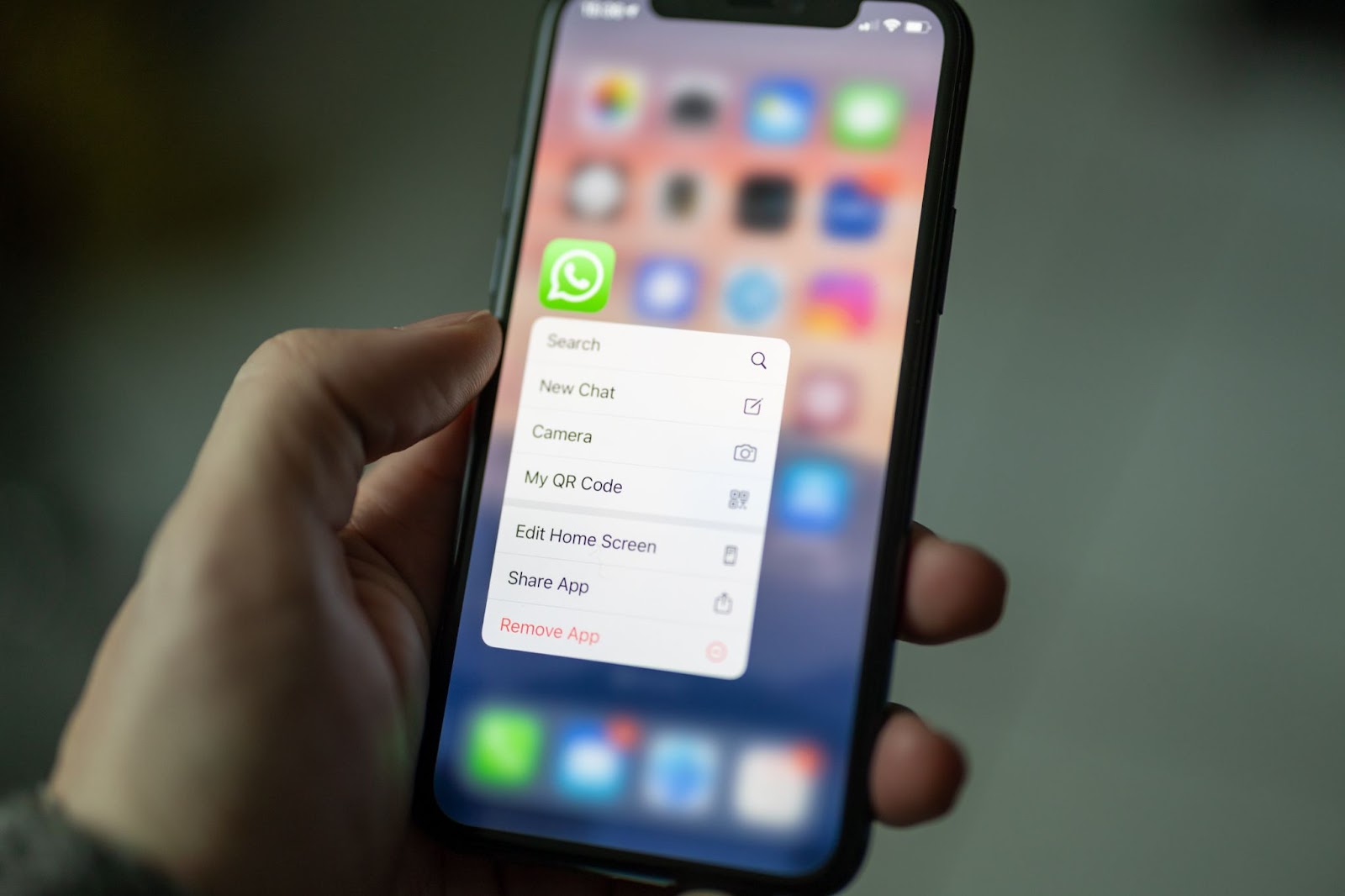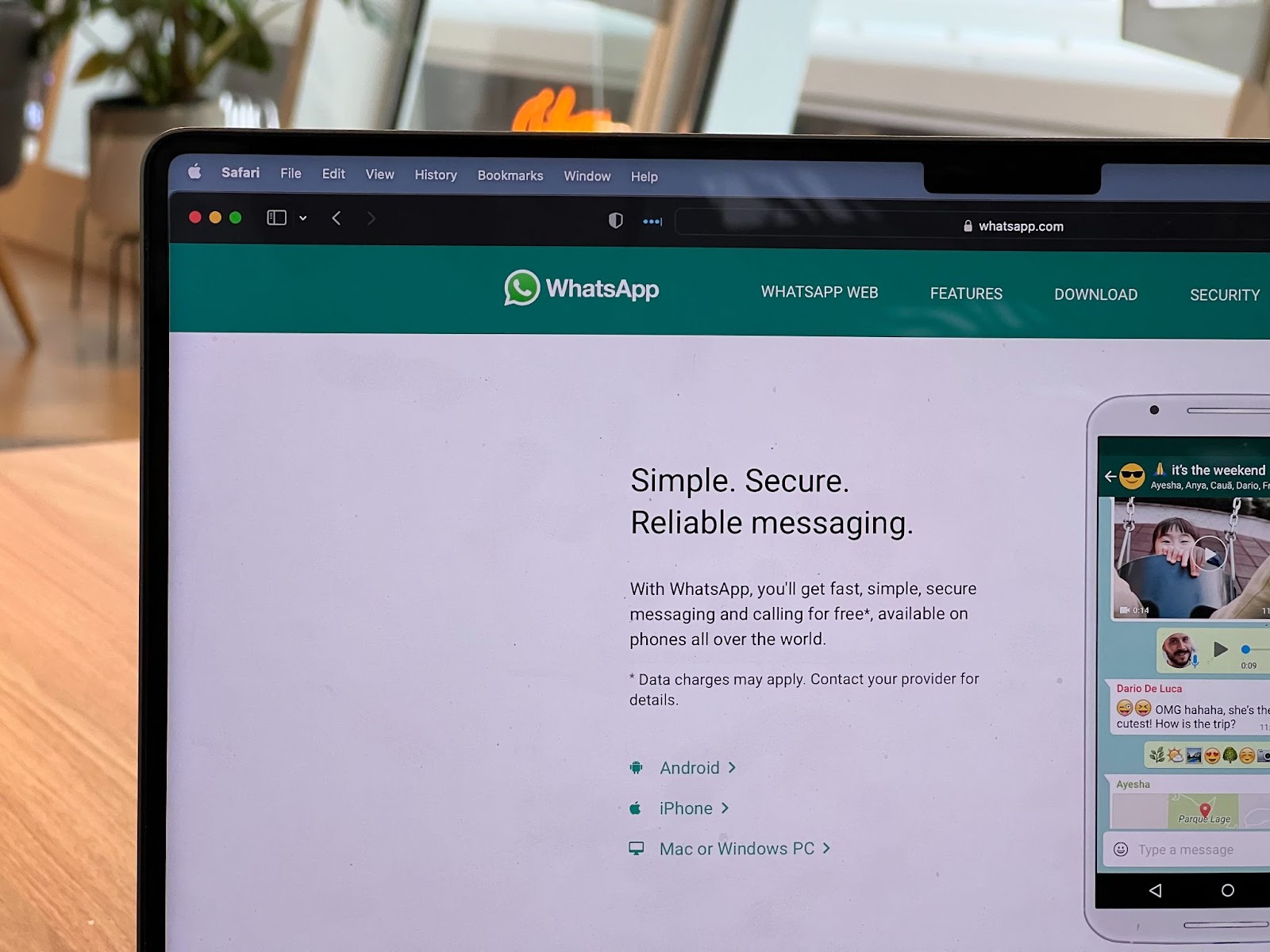QA Whatsapp Will Cathcart IndiaKantrowitz OneZero is a mobile messaging application that has recently become popular with users. It is a cross-platform messaging service, allowing users to send and receive messages on any device. Through its features, QA Whatsapp Will Cathcart IndiaKantrowitz OneZero has enabled users to communicate with each other in a secure and reliable manner.
In this article, we will discuss the features and advantages of using QA Whatsapp Will Cathcart IndiaKantrowitz OneZero for communication.
Definition of QA
QA stands for Quality Assurance. It is the process of ensuring items meet a certain standard of quality determined by an organization. Quality assurance typically involves performing tests and audits to guarantee that the product or service being provided is up to the expected level of quality. Depending on an organization’s size and sophistication, it could be a standalone department within the organization or someone assigned to follow up on quality issues within the organization.
Quality assurance (QA) is not only beneficial for final products, but also throughout the development process, where it can help get rid of defects before they become part of a release. Quality Assurance teams leverage various testing strategies and practices, including manual testing and automated testing such as unit tests, integration tests, system tests and user acceptance tests, during software development cycles to ensure that business requirements are met with code performance and non-functional attributes also taken into account. The objective of Quality Assurance is to identify defects in a timely manner so that bugs can be fixed before releasing a product or service into production environments.
Overview of WhatsApp
WhatsApp is a popular messaging application that allows people to easily communicate with one another over the internet. It is a cross-platform app that can be used on both mobile and desktop devices, and has more than 1.5 billion users around the world. At its core, WhatsApp provides an easy-to-use interface for communication between individuals or groups of people. It allows you to send messages, photos, videos, files, and other types of media in a secure environment. You can also make voice and video calls with your contacts. With features like notifications for when someone read your message, you’ll never miss out on important updates from your friends or colleagues. For businesses and organizations, WhatsApp offers features like group chat and status updates — keeping everyone connected at all times. WhatsApp was recently acquired by Facebook for $19 billion in 2014 opening up even more possibilities for the messenger app’s future development onezero qa india kantrowitz cathcart. Facebook plans to build even more advanced features on top of WhatsApp while still remaining committed to protecting users privacy and security as they always have realtor castaways cnet idg cgatestore.

Qa Whatsapp Will Cathcart IndiaKantrowitz Onezero
QA and WhatsApp are two technologies that can be used together to help automate customer service. QA stands for quality assurance and is a set of practices designed to ensure product or service quality. WhatsApp is a popular messaging app that is used by over two billion people around the world.
In this article, we will explore how QA and WhatsApp can be used together to improve customer service.
Will Cathcart’s Role at WhatsApp
Will Cathcart is the Head of WhatsApp at Facebook. Before joining WhatsApp, he served as the Vice President of Product Management for Google, where he was responsible for developing products such as Google Maps and Gmail. He also oversaw product teams that included Google Ads and Search, ensuring user needs were at the forefront of every development decision.
At WhatsApp, Will Cathcart leads a global team of over 1,000 engineers who focus on making the messaging experience on WhatsApp faster, simpler and more secure. His main focus is overseeing product teams working across mobile apps as well as website projects around security and privacy across WhatsApp’s platforms. This includes enabling end-to-end encryption for users to ensure their conversations are private at all times.
He is also actively involved in advocating technology policies to government policymakers in order to promote fair practices when it comes to data privacy rights around the world.
India Kantrowitz’s Role at WhatsApp
India Kantrowitz is a Quality Assurance (QA) specialist at the company WhatsApp. Her role involves constructing test methods, tests and procedures to be conducted on the app’s codebase in order to guarantee its quality and reliability. She also reviews applications for bugs, defects and other code related issues. Additionally, her role entails working with other members of her team to assess app functionality and service performance.
She oversees the operations associated with running tests such as writing test plans, logging defects and analyzing results in order to ensure that proper corrective action is taken whenever necessary. Additionally, she monitors the general usage of WhatsApp by customers and creates documentation related to best practices and user experience.
Ultimately, India Kantrowitz’s role at WhatsApp involves driving quality assurance objectives across all development projects while staying up-to-date with industry developments related to QA strategies and automation solutions.
OneZero’s Role at WhatsApp
OneZero, a digital media outlet owned by Medium, recently published an in-depth look at the role of quality assurance (QA) engineers at WhatsApp. Quality assurance engineers are responsible for making sure the app is functioning correctly and efficiently. As WhatsApp continues to expand their markets and services, QA engineers such as Cathcart India and Kantrowitz play an essential role in ensuring a smooth user experience.
Cathcart India is a QA engineer with fourteen years of experience working in software engineering. In addition to his success in maintaining approvals for applications like Snapchat, Microsoft Outlook and Facebook, Cathcart has achieved great feats at WhatsApp over the past year. His current job requires taking ownership of projects that facilitate user engagement, performance enhancements for WhatsApp Web and electronic data capture (EDC). The EDC project has allowed 1 billion people around the globe to participate in surveys that offer better insights into what products serve their interests best.
Kantrowitz is a mobile engineer who manages both client and server QA efforts at WhatsApp. He ensures tests are conducted optimally as well as maintain continuous integrations with intelligent automation testing tools like Virtual Boxes, Jake Wright’s Jenkins Continuous Integration (CI) toolset, Appium Cross-Platform Mobile Testing Framework, JIRA Service Desk Management System and more. His team also sets up benchmarking tools such as New Relic Profiler and Auspice DB Watchdog so they can review performance bugs as they occur while allowing continuity with existing tests. Furthermore, Kantrowitz led two annual hackathons to encourage sharing ideas between teams within the company.
Both Cathcart India’s and Kantrowitz’s achievements have opened doors for the company by securely pushing innovative additions to its suite of services each quarter — further establishing its mark within the communications’ industry today.
Benefits of QA And WhatsApp
Quality Assurance (QA) and WhatsApp are widely used tools today. QA helps ensure that products and services meet quality standards and that they perform as expected.
WhatsApp, on the other hand, is an easy-to-use messaging app that makes it convenient to communicate with people all around the world.
In this article, we’ll take a look at the key benefits of both QA and WhatsApp.
Improved Customer Experience
Quality Assurance (QA) and WhatsApp can help improve customers’ experiences by making it easier, more efficient, and more reliable to communicate with businesses. With QA and WhatsApp, businesses are able to increase the speed of customer service and keep track of customer interactions. This helps ensure all requests are answered in a timely manner and customers receive the personal attention they deserve.
QA also ensures all customer inquiries and requests for support are tracked accurately so that issues can be addressed quickly. Furthermore, automatic messages from WhatsApp allow customers to get answers quickly without having to wait for a response from a customer service representative, which improves the overall customer experience.
Finally, QA processes combined with WhatsApp allows for data collection on customer interactions that can be used for business analysis in order to identify areas of improvement in products or services based upon insights gathered from customers.
Increased Product Quality
Quality Assurance (QA) and WhatsApp go hand in hand to boost product quality. QA helps ensure that software products are delivered with as few bugs as possible and meet customer expectations. WhatsApp helps facilitate an organized communication channel to make this process easier, faster and more efficient for QA teams, developers, and customers.
QA teams use WhatsApp for project-related discussion, keeping track of upcoming timelines and bug fixes in the software development life cycle (SDLC). All the stakeholders – developers, QA personnel, designers and customers – can keep up-to-date on the progress of new features or updates via a well-regulated communications system. Additionally, making sure that bugs are triaged quickly during the SDLC process is critical in order to minimize any negative effects on users which can result from them being unresolved. With WhatsApp conversations amongst team members on specific issues are easily kept track of which results in rapid bug resolution.
Lastly, with constant communication via WhatsApp between developers and QA teams at multiple points along the SDLC lifecycle it ensures that all stakeholders have a clear understanding of what is expected from them resulting in higher product quality when it is delivered to customers. This also helps build customer trust in their expectations of the product meeting their needs over time as bug fixes are identified and addressed quickly when they arise.
Improved User Engagement
For businesses looking to increase user engagement, QA WhatsApp is a great tool. QA WhatsApp provides an easy way for customers to contact a company and follow-up with their queries. This gives customers a real-time direct connection with the business and allows them to have their questions answered quickly and accurately.
Furthermore, it provides companies with valuable customer feedback. QA on WhatsApp also offers companies the opportunity to create interactive conversations by posing open-ended questions to customers or providing content in the form of polls or surveys. This type of interaction can help keep customers engaged and improve overall user satisfaction while simultaneously gathering important data about customer behavior and preferences. Additionally, engaging with users in real time helps businesses understand their target audience more effectively. Overall, QA on WhatsApp can be an invaluable way for businesses to build relationships with their users and boost engagement levels significantly. Engaging customers through this platform helps build trust between business owners and consumers, providing a smoother customer journey overall.

Challenges of QA And WhatsApp
QA and WhatsApp have become increasingly popular tools for communication and collaboration amongst teams. However, with the rise in usage, come some challenges that need to be addressed. Companies have to ensure that their teams are using these tools effectively and securely, while also maintaining productivity and engagement. In this article, we will be discussing the challenges that come along with QA and WhatsApp, as well as some potential solutions.
Data Privacy And Security
Data privacy and security is one of the main challenges related to Quality Assurance (QA) and WhatsApp. The rapid advancement and wide adoption of digital communication technology, such as social media, messaging apps, and customer support systems, all require stringent compliance with government or industry regulations that protect user data. Global giants such as Facebook have been under regulatory pressure for alleged missteps in protecting customer data from unauthorized access, misuse or abuse. For WhatsApp, which is now owned by Facebook, this has posed additional challenges related to ensuring data security. The EU’s GDPR (General Data Protection Regulation) requires companies to store customer data in a secure manner while also making it easy for users to opt-in or out of certain notifications or services. WhatsApp must have processes in place to ensure authorization and authentication are required for all communications involving customers’ personal information. In addition, any changes made to the application must also be cleared by QA engineers prior to deployment in order to protect user data from being manipulated or compromised. In terms of ongoing maintenance and upgrades, QA engineers must continuously monitor the app for any potential bugs which can be exploited by malicious actors who wish to gain access to customer information stored within the application. To ensure adequate performance under these strict compliance conditions while retaining a smooth user experience has necessitated robust Quality Assurance tests performed throughout multiple stages of development: namely unit testing where individual pieces of code are scrutinized; integration testing where several modules are combined into a larger system; and systemwide validation testing designed to reveal unexpected behavior caused when various components interact with each other. If all can be done properly with no major issues arising during regression tests then users will remain protected and their personal information will be confidential regardless if they stay logged on throughout multiple sessions closerly.
Time And Resource Constraints
The challenges associated with Quality Assurance (QA) of WhatsApp applications are primarily due to the time and resource constraints involved. QA activities involve complex tasks such as setting up test scenarios, testing different combinations of devices, platforms, and configurations, manual comparison of design requirements to functionality obtained from automated tests, as well as validating various aspects of application performance. These activities can be extremely time consuming and require significant resources in terms of money and personnel. In addition to this, it is also important to ensure that QA results are obtained regularly in order to identify any issues or bugs that may have been missed during initial testing. This means that the testing process must be regularly reviewed in order to identify any areas of improvement or optimization that could yield better results. Finally, given the continual rate of innovation in technology today and ever-changing mobile environments across various platforms, it is important for teams to stay up-to-date on certain practices related to QA for WhatsApp applications so that their results are optimized for maximum efficacy.
Lack of Automation
One of the biggest challenges when dealing with Quality Assurance (QA) on WhatsApp is the lack of automation. Unlike other digital platforms and messaging systems, WhatsApp does not have automated testing tools and processes that can help ensure that each message sent out is transmitted accurately and in the right format. Without this type of automation, QA teams are left to manually check every single chat message for accuracy and risk errors or miscommunication in the process. WhatsApp also lacks a comprehensive set of APIs or Webhooks to support human-in-the-loop testing, so QA teams are limited to manual end-to-end testing that requires both time and resources. This can be especially challenging if you have a large user base, as it limits your ability to quickly respond to bug reports or other user issues. Additionally, it can be difficult to detect bugs for very complex conversations where interactions between multiple users need to be tested at once.
Finally, when dealing with QA on WhatsApp there is always the risk of fake data being introduced into your environment as it is difficult to guarantee data security with manual testing methods. All in all, these challenges highlight why having a solid automation strategy for WhatsApp tests is essential in producing accurate results and ensuring product quality.
Conclusion
The article explains that “QA WhatsApp will Cathcart IndiaKantrowitz OneZero” is a term used to describe an automated system for ensuring quality assurance (QA) in the WhatsApp messaging platform. This system can be used for testing and checking content such as text, images, audio, and video before publishing it on the WhatsApp messaging platform. It has been developed by Cathcart IndiaKantrowitz OneZero in collaboration with WhatsApp Inc. and is a powerful tool to improve user experience within the messaging platform. Furthermore, it can be integrated into existing software development processes to ensure high levels of quality assurance are maintained across all projects. In conclusion, QA Whatsapp will Cathcart IndiaKantrowitz OneZero plays an important role in ensuring high-quality development on the most popular messaging app in the world today.

